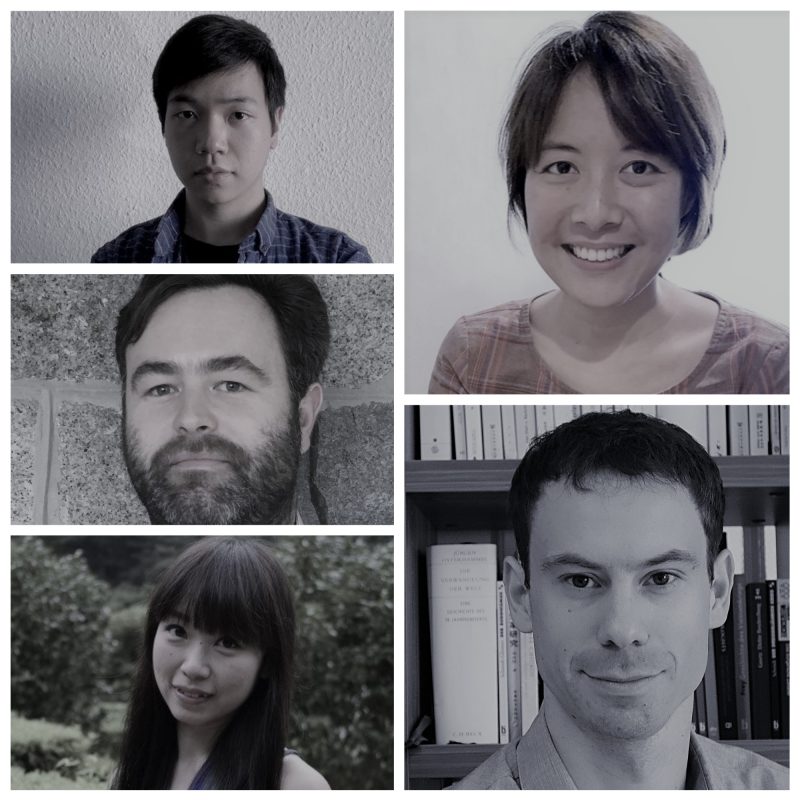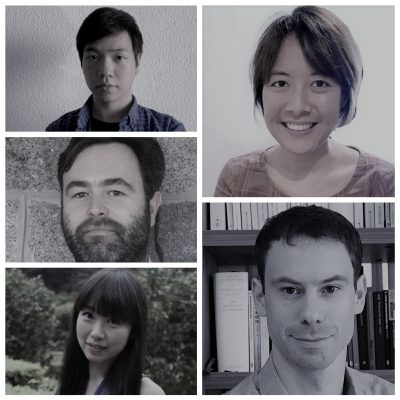【IWD Webinar Series】Masculinities in East Asia: Emerging Topics

| Date(s) | March 11, 2021 (Thursday) 6:00-7:30 pm |
|---|---|
| Venue |
Zoom Webinar (Register here) |
| Registration | Pre-registration required |
| Language | English Only |
| Abstract |
This webinar brings together early career scholars in history, anthropology and the social sciences to discuss their work, comparative and transnational perspectives, and current topics in the study of masculinities in East Asia. A 60 minute conversation will be followed by a Q&A session with the audience. |
| Program |
YUEN Shu Min: “Gender and sexuality, popular culture, and mobilities and migration in Japan” Sylvia Ang: “Chinese labour migrants in Singapore” Nicolas Schillinger: “History of gender and the body in China, military history” An Huy TRAN: “Vietnamese migrants in contemporary Japan” Robert Kramm: “Global history of sexuality, Utopian communities” Q&A session |
| Speaker Profile |
Speakers:
Yuen Shu Min (Postdoctoral Fellow, Department of Japanese Studies, National University of Singapore) YUEN Shu Min is a Postdoctoral fellow at the Department of Japanese Studies, National University of Singapore. Her research interests include gender and sexuality, popular culture, and mobilities and migration. Her current book project examines the lived realities of female-to-male trans men in contemporary Japan. Her recent works appear in Asian Anthropology (2020), and TSQ: Transgender Studies Quarterly (forthcoming).
Sylvia Ang (Affiliate, School of Social and Political Sciences, University of Melbourne) Sylvia Ang recently completed a Postdoctoral Fellow at the Asia Research Institute, National University of Singapore. Her PhD, obtained from the University of Melbourne, investigated how the rise of China is affecting migrants and locals’ social practices and cultural understandings in Singapore. Her research interests lie at the intersection of race and migration studies including ethnicity, gender and class as well as racialization and racism, She has published in various journals including the Journal of Ethnic and Migration Studies, Gender, Place and Culture and Mobilities. Her monograph Contesting Chineseness: Ethnicity, Class, Gender and New Chinese migrants was recently contracted by Amsterdam University Press.
Nicolas Schillinger (Visiting Professor, Institute of Chinese Studies, Freie Universität Berlin) Nicolas received his Ph.D. from Heidelberg University and is a Visiting Professor in Modern Chinese History at Freie Universität Berlin since 2019. His research focuses on the History of Body and Gender, Military History and the History of Science and Knowledge. His first book deals with military reforms in late Qing and early Republican China and their effect on conceptualizing bodies and masculinity. Currently, he is working on a book manuscript on the link between science and war in Republican China, examining the role of medicine, germs, chemicals, and death rays for the Chinese army in the 1930s and 1940s.
An Huy TRAN (PhD researcher, Institute of East Asian Studies, University of Duisburg-Essen) An Huy Tran is a PhD Researcher at the Institute of East Asian Studies, University of Duisburg-Essen. Tran has been researching extensively about the Vietnamese migrant community in contemporary Japan and the migration channels that facilitate transnational migration between Vietnam and Japan. His current research focuses on the intersections of transnational mobilities, sexualities and masculinities among Vietnamese migrant men in Japan. Tran’s research interests also include transnationalism, brokerage/ intermediaries, migrant entrepreneurship, positionality and creative qualitative methods.
Robert Kramm (Freigeist Fellow, Munich Centre for Global History, LMU Munich) Robert Kramm is a historian, Freigeist-Fellow, and principal investigator of the research group “Radical Utopian Communities” at LMU Munich. His field is 19th and 20th-centuries global history, history of everyday life and modern Japanese history with a combined focus on the history of the body, sexuality, anarchism and communes. His first book,Sanitized Sex (UC Press, 2017), analyzes the regulation of sexuality, sex work, and intimacy during the occupation of Japan after World War II. His second book project is a social and cultural history of the early twentieth century investigating communal life in Japan, Jamaica and South Africa.
Moderator: Michael Facius (Associate Professor, Tokyo College)
|
| Organized by | Tokyo College, The University of Tokyo |
| Contact | tokyo.college.event@tc.u-tokyo.ac.jp |
















